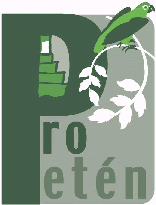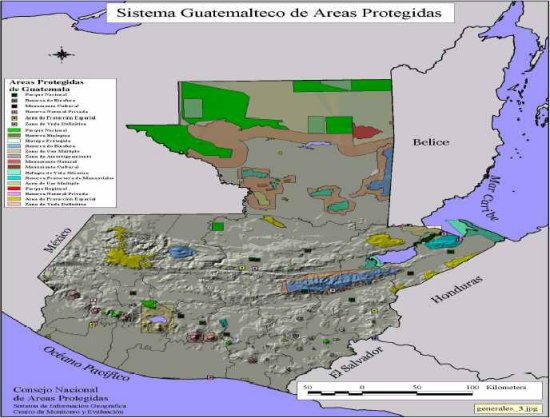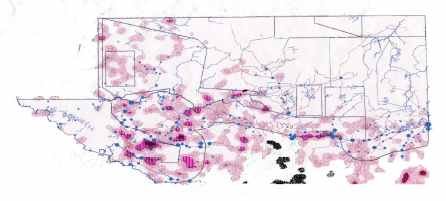Reserve Personnel Training in Laguna del Tigre, Ramsar Site in Guatemala
News from the Wetlands for the Future Fund in Guatemala
 With funding support of Wetlands for the Future (project WFF/01-2/GTM/1), Fundación Propetén (www.propeten.org) carried out in 2002 the "School of Agroforestry promoters and Wetland Park Rangers" in the Las Guacamayas Biological Station in Laguna del Tigre National Park (Ramsar site in the Montreux record). The course was developed by an interdisciplinary group of biologists, agronomists, environmental educators and sociologists. 39 community leaders and park rangers graduated from the course, including personnel from the National Commission of Protected Areas (CONANP).
With funding support of Wetlands for the Future (project WFF/01-2/GTM/1), Fundación Propetén (www.propeten.org) carried out in 2002 the "School of Agroforestry promoters and Wetland Park Rangers" in the Las Guacamayas Biological Station in Laguna del Tigre National Park (Ramsar site in the Montreux record). The course was developed by an interdisciplinary group of biologists, agronomists, environmental educators and sociologists. 39 community leaders and park rangers graduated from the course, including personnel from the National Commission of Protected Areas (CONANP).
The training program included 12 courses given over nine months: community organization and development; forest fire prevention and basic control techniques; wetland ecology; protected area legislation; health and environment; orchards, medicinal and edible plants; forest soils and nurseries, agro forestry systems; captive wildlife management; animal health; natural pesticides; roles and functions of park rangers; basic techniques for research and biological monitoring; first aid.
The project generated a teaching module in a CD with presentations of the courses. For further information please contact, Henry Cano, Propetén: hcano@propeten.org

Learning about environmental law: Map of Protected Areas in Guatemala

Much training is necessary to stand up to serious problems as the great forest fires that ravaged the area in 1998, as shown by the map.
-- reported by Iván Darío Valencia, Ramsar.
The Bureau of the Convention on Wetlands (Ramsar, Iran, 1971), the U.S. Department of State, and the U.S. Fish and Wildlife Service support the Wetlands for the Future Fund (WFF) training initiative for the Western Hemisphere, first begun in 1997. This activity promotes the implementation of the concept of "wise use" of wetlands through the strengthening of the capacity of countries to manage their wetland resources in perpetuity and by contributing to the integration of wetland conservation and management with the development process. All proposed activities must be in line with the principles, recommendations and guidelines of the Ramsar Convention. For more information about the WFF, see http://ramsar.org/caxref:4158.